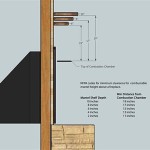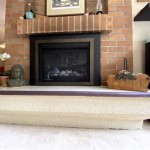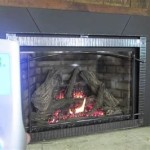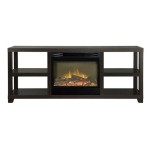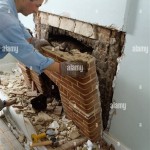What Can I Clean a Brick Fireplace With?
Maintaining a brick fireplace requires regular cleaning to remove soot, ash, and other debris that accumulate over time. Choosing the right cleaning method and solution is crucial to avoid damaging the brick and mortar. Several effective options are available, ranging from readily accessible household items to specialized cleaning products. Understanding the nature of the stains and the properties of different cleaning agents will ensure a successful and safe cleaning process.
Before commencing any cleaning procedure, it is essential to take precautionary measures. This includes wearing protective gloves and eyewear to prevent skin and eye irritation from cleaning agents. Covering the surrounding floor area with a drop cloth or plastic sheeting will protect it from spills and splashes. Proper ventilation is also important, so open windows and doors to ensure adequate airflow during the cleaning process.
Cleaning with Dish Soap and Water
One of the simplest and safest methods for cleaning a brick fireplace involves using dish soap and water. This approach is particularly effective for removing light soot and grime. Begin by mixing a few drops of mild dish soap with warm water in a bucket. Avoid using abrasive or harsh detergents, as they can damage the brick surface. Test the solution on an inconspicuous area of the fireplace to ensure it does not cause discoloration or etching.
Once the solution is prepared, use a soft-bristled brush or sponge to apply it to the brick surface. Gently scrub the brick, paying attention to areas with heavy soot buildup. Avoid excessive pressure, as this can damage the mortar joints. After scrubbing, rinse the brick thoroughly with clean water. Use a clean sponge or cloth to wipe away any remaining soap residue. Allow the brick to air dry completely. A fan can be used to expedite the drying process.
For stubborn soot stains, repeat the process as necessary. If the dish soap and water solution is not sufficient, consider using a slightly stronger cleaning agent or method. However, always proceed with caution and test the solution in an inconspicuous area first. Keep in mind that this method is best suited for relatively clean fireplaces or for routine maintenance cleaning.
Furthermore, be aware of the type of brick used in the fireplace construction. Certain types of brick are more porous than others and may absorb water and cleaning solutions more readily. This can lead to efflorescence, a white, powdery deposit that appears on the surface of the brick. Efflorescence is caused by the migration of salts to the surface as the water evaporates. To prevent efflorescence, avoid oversaturating the brick with water during cleaning and consider using a brick sealant after cleaning and drying.
Using Vinegar Solution
Vinegar, specifically white vinegar, is a natural and effective cleaning agent for brick. Its mild acidity helps to dissolve soot and grime without being overly harsh on the brick surface. A vinegar solution can be prepared by mixing equal parts white vinegar and water in a spray bottle. As with any cleaning solution, it is advisable to test the solution on an inconspicuous area of the fireplace before applying it to the entire surface.
Spray the vinegar solution liberally onto the brick, ensuring that the affected areas are thoroughly dampened. Allow the solution to sit for several minutes to allow it to penetrate the soot and grime. Use a scrub brush with stiff bristles to scrub the brick surface, paying particular attention to areas with heavy deposits. Apply moderate pressure to dislodge the soot without damaging the brick or mortar.
After scrubbing, rinse the brick thoroughly with clean water. Use a sponge or cloth to wipe away any remaining vinegar residue. Vinegar has a distinct odor that may linger after cleaning; therefore, ensure adequate ventilation to dissipate the smell. If the odor persists, rinse the brick again with a solution of baking soda and water. Baking soda is a natural deodorizer that can help to neutralize the vinegar smell.
For particularly stubborn stains, consider creating a vinegar paste. Mix white vinegar with baking soda to form a thick paste. Apply the paste directly to the stained area and allow it to sit for several hours or even overnight. The baking soda will act as a mild abrasive, helping to lift the stain. After the paste has had sufficient time to work, scrub the area with a brush and rinse thoroughly with clean water.
While vinegar is generally safe for cleaning brick, it is important to exercise caution when using it on certain types of stone or mortar. Vinegar can etch or damage some types of natural stone, such as marble or limestone. It can also weaken or dissolve some types of mortar. If unsure about the compatibility of vinegar with the materials used in the fireplace construction, consult a professional cleaning service or conduct a test on an inconspicuous area.
Employing Commercial Brick Cleaners
For heavily soiled brick fireplaces or those with stubborn stains, commercial brick cleaners may be necessary. These cleaners are specifically formulated to remove soot, smoke stains, and other types of grime from brick surfaces. However, it is crucial to choose a product that is safe for use on brick and mortar and to follow the manufacturer's instructions carefully.
When selecting a commercial brick cleaner, look for products that are non-acidic and pH-neutral. Acidic cleaners can damage the brick and mortar, causing discoloration, etching, and structural weakening. Read the product label carefully to ensure that it is specifically designed for cleaning brick fireplaces. Consider purchasing a cleaner that is biodegradable and environmentally friendly.
Before applying the cleaner to the entire fireplace, test it on an inconspicuous area to ensure that it does not cause any adverse reactions. Apply the cleaner according to the manufacturer's instructions. This typically involves spraying or brushing the cleaner onto the brick surface and allowing it to sit for a specified period. Use a scrub brush with stiff bristles to scrub the brick, paying attention to areas with heavy deposits.
After scrubbing, rinse the brick thoroughly with clean water. Use a sponge or cloth to wipe away any remaining cleaner residue. Some commercial brick cleaners may require neutralization after use. Follow the manufacturer's instructions to determine if neutralization is necessary and, if so, which neutralizing agent to use. Allow the brick to air dry completely before using the fireplace.
When using commercial brick cleaners, it is essential to wear appropriate protective gear, including gloves, eyewear, and a respirator. These cleaners may contain chemicals that can irritate the skin, eyes, and respiratory system. Ensure adequate ventilation during the cleaning process to minimize exposure to fumes. Dispose of used cleaning solutions and materials properly, following local regulations.
Furthermore, consider the long-term effects of using commercial brick cleaners on the environment and the fireplace structure. Frequent use of harsh chemicals can degrade the brick and mortar over time, leading to costly repairs. Whenever possible, opt for natural cleaning methods or milder commercial cleaners. Regular maintenance cleaning can also help to prevent the buildup of heavy soot and grime, reducing the need for harsh chemicals.
In addition to the above methods, sometimes a simple stiff brush can do the trick for very light soot or ash. Dry brushing before using any liquid cleaner can help remove loose debris and improve the effectiveness of the wet cleaning methods. Vacuuming the brick surface with a brush attachment can also be helpful in removing loose particles before and after cleaning. These methods are less intrusive and can be used for regular maintenance. Proper fireplace maintenance, including regular cleaning and inspection, will help prolong the life of the fireplace and keep it looking its best.

How To Clean Internal Bricks On A Fireplace Sharn S House

Vane Cottage Chemical Brick Mortar Soot Cleaner 6

How To Clean Fireplace Bricks 9 Steps With S Wikihow

How To Clean A Fireplace Diy Basics

How To Clean Brick The Home Depot

How To Clean Fireplace Brick Monty S Vintage

How To Clean Brick The Home Depot

How To Clean A Brick Fireplace

Fireplace Cleaning Tutorial Kippi At Home

How To Clean Fireplace Bricks Alexander And Xavier Masonry


